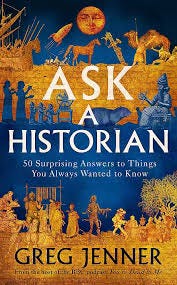The Shock of the Familiar
[and other assorted copyeditorial meditations]
[originally published November 26, 2024]
A note re notes: I’ve been informed that not all my readers are aware that these essays’ myriad footnotes are in fact linked to the text, which not-awareness has led to people’s either scrolling violently back and forth (i.e., up and down), which I’d think must be dizzying, or, ingeniously and heroically, reading on two screens simultaneously.
It doesn’t have to be that hard!
If you’re reading on a desktop computer, all you have to do is hover your cursor over the superscript numbers in the text, and the footnotes will pop right up. And if you’re reading on your phone—well, I can speak only for my iPhone, but I trust it’s the same deal for all phones more advanced than this:
—you can simply boop the superscript number as if it were a dog’s nose, and voilà! (And then you just X the note away when you’re done reading it.)
And now, without further ado, on with the show.
I was reminded the other afternoon, as I was sneaker shopping to the accompaniment of piped-in Christmas music, that ’tis1 apparently already (and a few days early, if you ask me) the season for “’Tis the season.”
Not ever having worked at a newspaper copy desk during the weeks leading up to what we tend to refer to here in the U S of A secularly as “the holidays,” I do not have firsthand experience of the incessant dread of coping with (which is to say obliterating) “’Tis the season” headlines and ledes, but I’ve certainly, in my time as a copy editor, seen more than my share of hackneyed phrases I’ve tried my best to pry loose from other writers’ writing.
I couldn’t stop myself, though perhaps I should have stopped myself, from asserting, in the book I tend to refer to as DE because even I get tired of looking at my own name after a while: “Avoid clichés like the plague.”
It’s funny ’cause2 it’s true!, I defensively note, wielding a relatively newfangled3 banality.
So let’s remove a few tried and true tritenesses from your roster.
I will allow myself a single “The horror! The horror!”4 once a year or so, I confess, then I put it back in its box. You should feel free to do the same; fair is fair. And as much as I dote on Alice’s Adventures in Wonderland, I’ve entirely sworn off “curiouser and curiouser,” because it’s just gotten tireder and tireder. (The urge to quote Lewis Carroll is nearly irresistible, I’ve found, but if you must quote him, try to find a passage that hasn’t already been quoted to death. It’s much harder than you think.) Casablanca’s “I’m shocked! shocked!”5 is long overdue to collect its winnings and go home, and any variation on “Lions and tigers and bears, oh my!” should surely be doused with a bucket of cold water.6
Some stock phrases enjoy an intense vogue, then fade forever (or at least one hopes they do). In the early 1990s, for instance, one couldn’t throw a rock without hitting7 a “the mother of all [something or others],” in honor of what we in the West tend to refer to as the Gulf War and the Iraqis had dubbed “the mother of all battles” (Umm al-Ma’arik). Now one can throw all the rocks one likes without hitting a thing, at least not anyone’s mother.
Having just reminded myself of its debut date,8 I’m surprised to realize that Ken Watanabe’s majestically intoned “Let them fight” has been knocking around for a full decade since whichever Godzilla movie that was.9 I’ve been known to reach for it myself when observing a face-off between two equally odious opponents, but what can I tell you, I’m always amused by the things I find amusing. Which is no excuse, and yet. I guess we’ll see how long that one lasts.
The passing-fancy thing can be odd, though, and some clichés fade so fully from the collective mindset that perhaps only agèd copy editors ever even think about them. I can recall, back in my early-’90s10 freelancing days, endlessly running into “sea-change,” and now I can’t recall the last time I encountered it. Also around that time, “nubbin” became a punchline for turning up in one too many New York Times restaurant reviews,11 and in the early 2010s, a certain book critic from that same graying lady was targeted (rather hilariously, I thought) for her incessant use of “limn,” to the point where if I ever felt the urge to use that word, which as a rule I don’t, it could only be winkingly.
“Use your words” is the popular exhortation to tantrumming toddlers. “Use fresh words” would be my exhortation to you grownups.
A few other wee copyeditorial things I had jotted down for quick dispatch, before you run off to roast your turkeys:
• As odd as it may seem to people who would never mix them up, some people do confuse “ancestors” and “descendants.” Don’t be some people.
• Sentences beginning “Guess what” or “I wonder” are not questions, and they should not conclude with question marks.
• I’m observing lately a movement toward normalizing the use of “criteria” as a singular noun, to which I would simply say: Can we not, please. The singular of “criterion” is, well, “criterion,” and its plural is “criteria” (“criterions,” if you must). See also “phenomenon” and “phenomena” (or “phenomenons”). If this strictness puts me in the camp of horrible prescriptivist martinets, I’m only too happy to say, in the immortal (and perhaps not excessively clichéd) words of one Tootie Smith of St. Louis: I’m the most horrible [prescriptive martinet]! I’m the most horrible [prescriptive martinet]!
• There is always a more interesting way to begin a sentence than with “There is.”12
• One refers to “an FBI agent.” Yes indeedy, FBI stands for Federal Bureau of Investigation, but if you want your reader to read “a Federal Bureau of Investigation agent,” then you have to write “a Federal Bureau of Investigation agent.” The same goes for “an RN” vs. “a registered nurse,” and other similar duos.
• Relatedly—and every now and then I do like to assert an assertion and then refuse to expand on it, explain it, or negotiate it—it’s “a historian.” Not “an historian.”13
Thank you for being here for what I believe to be ’stack14 no. 62. Which might be another way of saying “Hey, you know that there are 61 previous installments available for your enjoyment? You just have to scroll and click, scroll and click.” I thank you especially for subscribing, if you’ve done that, and I thank you especially especially for being a paid subscriber, if you’ve been moved to become one.15 Though I note, as always, that my Substack content is free to all readers and will remain that way.
Alternatively, if you’re moved to support me and my work somehow and would like to have something solid in your hands to show for it, I’ll always be grateful for your purchase of the book that dare not, apparently, speak its name and/or the game, and THEY MAKE MARVELOUS HOLIDAY PRESENTS.
Also, did you know that I’m available for speaking engagements at your university, library, Elks club, law firm,16 or literary kaffeeklatsch? Well, I am!
OK, that’s enough selling.
Happy Thanksgiving to all who celebrate, and I’ll see you, I’m sure, next week. Maybe even later this week, if the spirit moves me.
We’ve been through this before, but a reminder that if you want to type a correct ’tis (or any other word beginning with an apostrophe), the easiest method, which is to say the method I find easiest, is to type, in this case, x’tis and then delete the x, leaving you with a tidy and correct ’tis. Otherwise, if you attempt to freestyle it, you’ll end up with ‘tis (that is, with a single opening quotation mark rather than an apostrophe), which is not what you want.
x’cause, delete the x, and there’s your ’cause. Got it?
You know what other word, besides “newfangled,” doesn’t need a hyphen, though people often set one (and then I remove it)? “Highfalutin.” Which also doesn’t need a concludin’ apostrophe, though people often set one (and then I remove it).
The source is Joseph Conrad’s Heart of Darkness, natch.
Noting that that’s three repetitive clichés in a row. Maybe people just like things that come in pairs, like gloves, socks, and aces.
When you’re wide-eyed with wonder, do you have a feeling that you’re not in Kansas anymore? Well, unless you’re actually from Kansas (and your name is Gale and you’ve recently traveled via twister), find another way to say it.
Yes, I’m mildly pushing my luck with that one. How do you tell the difference between an arrant and utter cliché and something that’s simply fun to write and apt to cause merriment or at least a smile (or at least not a grimace)? Listen to your heart. You’ll know.
Which is to say: I looked it up. So many of the world’s problems, I often think, might be solved—or at least so many of the world’s unnecessary questions might go unasked—if people would look things up.
I kid! I kid! It’s from the classic 2014 reboot, one of the all-time greats.
Oops! . . . I did it again.
(I see what I did there.)
(OK, this is all getting a bit too meta.)
Post-publication addendum: Kurt Andersen, the co-founder of the legendary Spy magazine, and thus the co-originator of referring to our currently but not for long former president as a “short-fingered vulgarian,” reminds me that l’Affaire Nubbin began in a 1989 Spy piece by the great Henry Alford, and that nubbin discourse continued in that magazine’s letters column for the better part of two years.
He’s doing it again, isn’t he.
I’m not even going to comment on it this time.
Lawyers seem to like me; I’m as surprised as you are.





I long for something to be oldfangled. This reminds me of Peg Bracken and her wondering about where one would go to find a disreputable dry cleaner.
Thank you for "a historian." You and the esteemed John McIntyre will have words, though. (Personally, I'm not opposed to "an 'istorian," in writing--but who would do that?)